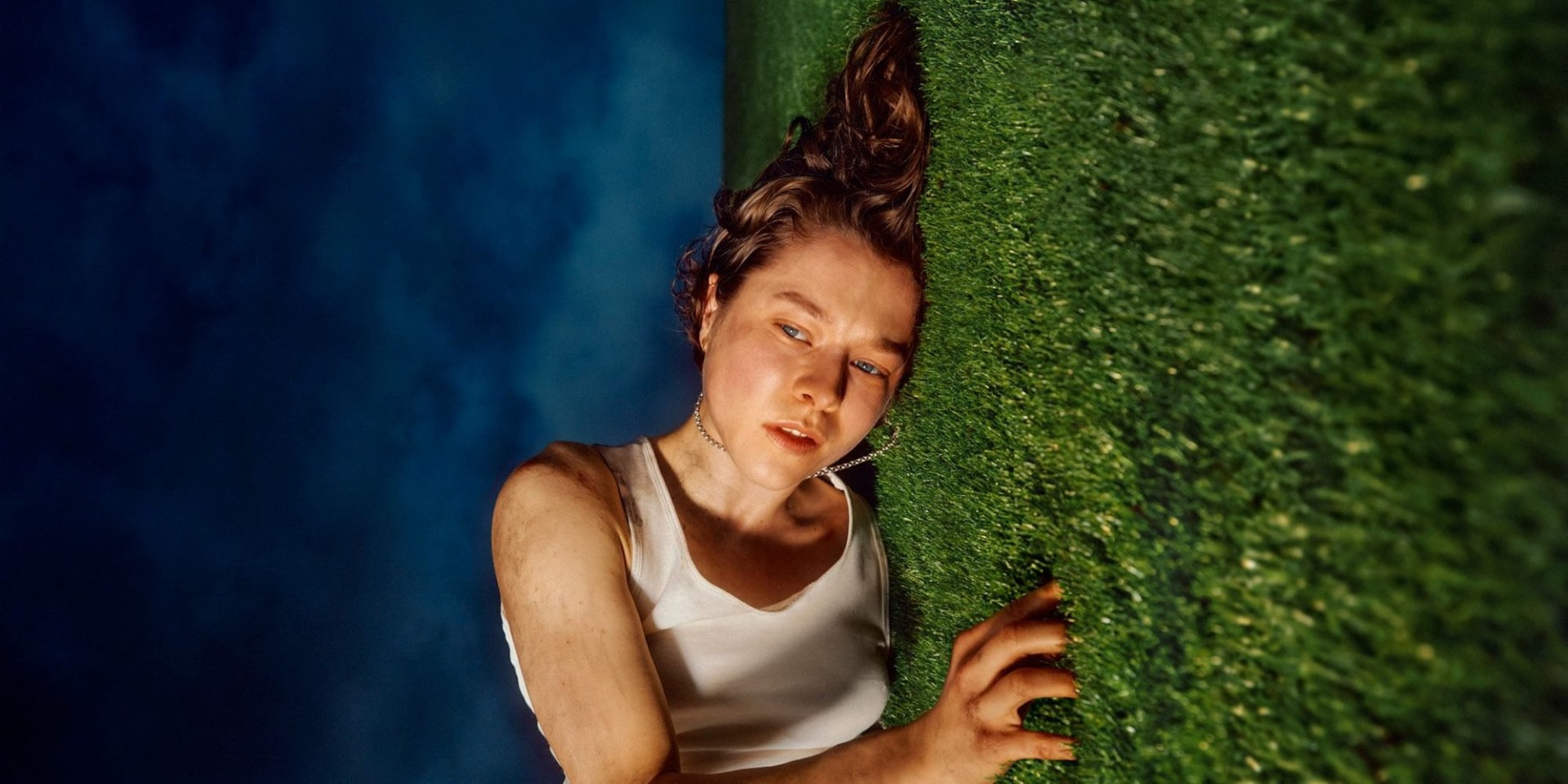Antigone / TOP
Antigone
The Other Place
Written and directed by Alexander Zeldin, 'The Other Place' is a play inspired by Sophocles' Antigone. The main themes that the play deals with are : managing grief, the breakdown of relationships due to hardship, and also exploring the idea of secrecy and repression through grief.
In the play, Annie (Antigone) is a troubled girl that adores her dead father, she doesnt want the ashes to be buried as she seems to feel disconnected from him and letting the ashes go means letting go of him which she cant do, she returns to her childhood home that her uncle now lives in with his family and her sister Izzy (Ismene) . She desperately tries to stop her uncle Chris (Creon) scattering the ashes of her father Adam (Oedipeus/Polynices) yet he feels that it needs to be done so that he can move on with his life - in hindsight it seems as though the scattering of the ashes signifies his need to move on, not just from the death but also his unique and disturbing relationship with Annie. Her timid sister Izzy, tries to keep the peace in the shattered family blissfully unaware of what has happened between Chris and Anne whilst Leni (Haemon), Erica (Eurydice) and Terry (Tiresias) provide much needed comic relief.
During the fierce argument around the proper resting place of Adam, we find out that Chris and Annie had a strange incestual sexual relationship whilst dealing with the grief from Adam's suicide. This causes the rapid breakdown of Annie and Izzy's close sister relationship when she and the rest of the characters find out which tips Annie, who was already drowning in guilt and grief, over the edge - in the final scene of the play, Leni finds Annie's body in the garden tent after she has committed suicide, like her father had.

Design
Set.
The other place is set in a house going through renovation. The set is an open kitchen/living room with no wall paper and exposed metal beams. The naked unfinished impression this gives the room reflects further on the theme of secrecy, it exposes the entire room just as Chris and Annie are exposed.
There is a kitchen unit and a table as well as a staircase on the left which the characters leave through when they exit the room. The back wall is entirely made up of a sliding glass door that leads into the garden which contains a blue tent that is put up by Annie when she isn't welcome in the house. She is an outsider in her own family. By using glass, Alexander Zeldin (The Director) purposefully reflects the audience. Throughout the play, the audience can constantly see themselves in the glass which acts as if it's a huge mirror. Similarly, the characters can also see themselves in the glass and some, like Annie, refuse to look at themselves, whilst others like Terry dance with themselves in the glass.
Lighting.
In the play, the only light comes from a huge rectangular light that is positioned directly above the set. The huge light represents the gods/fates from above as seen in the last scene where Chris screams at it to stop looking at him. This idea is furthered in Zeldin's speech before the play where he describes Korean theatre as having three parts - looking down=underworld, looking straight=mortal world and looking up=heaven.
It is harsh white light that illuminates every part of the set revealing secrets - the theme of secrecy and repression. There is nowhere the characters can hide from it - in the same way Chris and Annie's secret will eventually comes out.
In the second half of the play, Annie builds a tent in the garden and sleeps in it to avoid Chris. The tent is blue and placed behind the sliding doors and once erected, it is lit from within with a strange ghostly glow.
Sound.
The play has an original underscore composed by Yannis Philippakis. The pounding energy of the intense songs builds huge tension throughout the entire play. At one point, the characters go about their normal activities in the kitchen - Terry eats Chinese whilst Leni spins on a stool but for the entire sequence, a maddeningly-loud thudding song plays. This creates a sinister tone for such mundane tasks, the changing relationships and tension between the characters change even when nothing is happening.
The other most used sound in The Other Place is the phone notifications. In every single scene there is at least one sound notification noise from the phone placed on the table. These serve as a break in tension as when they happen every character stops and looks at the phone. They often come after very tense arguments or serious lines .
Costume.
All the characters in the play wear hyper realistic modern clothes. Chris wears a long black coat and jeans whilst Izzy is dressed in an adidas tracksuit. Zeldin chose these believable clothes to highlight to the audiences that the events of the play are happening to real people in the 21st century and that the powerful effects of grief are just as powerful today as they were 2500 years ago. It shows the audience that grief is a universal constant.
What the actors actually did (and why) - effect and meaning of extracts
3 moments where overall dramatic effect is shown
2 areas where the performers contributed heavily to their own dramatic intentions and the effectiveness as a piece as a whole. (Chris SA Annie when going for ashes) + (Izzy breakdown)
Links to other forms of theatre - GREEK
Changing Relations - Chris x Annie - Izzy x Annie